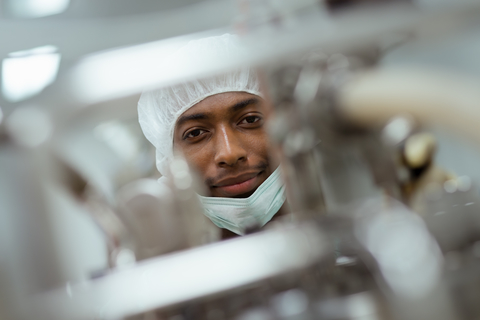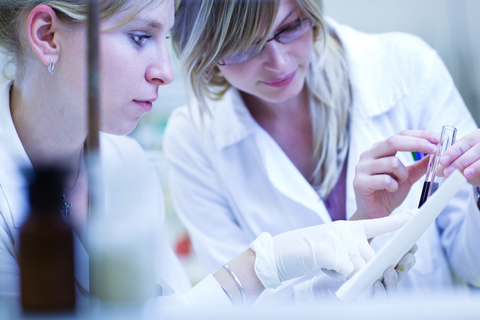
Researchers aiming for faster, more effective TB diagnosis
Oxford University researchers, in partnership with Public Health England (PHE), will lead a new worldwide collaboration called CRyPTIC to speed up diagnosis of TB (University of Oxford, 2017). TB infects nearly 10 million people each year and kills 1.5 million, making it one of the leading causes of death worldwide. Almost half a million people … Continue reading Researchers aiming for faster, more effective TB diagnosis

Immortalised cell lines could make red blood cell manufacture more efficient
University of Bristol researchers have generated the first immortalised cell lines which allow more efficient manufacture of red blood cells (University of Bristol, 2017). The team, from the University of Bristol and NHS Blood and Transplant, were able to manufacture red blood cells in a more efficient scale than was previously possible. The results, published … Continue reading Immortalised cell lines could make red blood cell manufacture more efficient
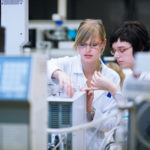
New drug proven to reduce your risk of dying from a heart attack or stroke
A pioneering new drug has been clinically proven to reduce the chance of someone dying from a heart attack or stroke (WalesOnline, 2017). Following a worldwide trial involving 27,500 high risk patients, evolocumab, also known as Repatha, was found to radically lower cholesterol levels. The study, which included scientists at Swansea University, found that evolocumab … Continue reading New drug proven to reduce your risk of dying from a heart attack or stroke

University of Birmingham purchase land for new life sciences park
The University of Birmingham has completed the purchase of 9.9 acres of land at the Battery site in the Selly Oak area of the city, and plans to work with partners to develop the site into a brand new life sciences park (University of Birmingham, 2017). Birmingham Life Sciences Park will include state-of-the-art research and … Continue reading University of Birmingham purchase land for new life sciences park

Scientists reverse ageing in mice
Researchers have developed a molecule that selectively destroys senescent cells, which are frail and damaged cells that age people and promote disease (Science, 2017). The compound makes old mice act and appear more youthful. “It’s definitely a landmark advance in the field,” said cell and molecular biologist Francis Rodier from the University of Montreal, who … Continue reading Scientists reverse ageing in mice

3D printed cartilage successfully implanted in mice
Researchers at Chalmers University of Technology and Sahlgrenska Academy have successfully induced human cartilage cells to live and grow in mice, using 3D printing (Scienmag, 2017). The results were recently presented in Plastic and Reconstructive Surgery Global Open. “This is the first time anyone has printed human-derived cartilage cells, implanted them in an animal model … Continue reading 3D printed cartilage successfully implanted in mice

Artificial lungs light enough to be carried in a backpack
An artificial lung that’s small enough to be carried in a backpack has been shown to work in sheep (New Scientist, 2017). It’s one of several devices being developed that could transform the lives of people with lung failure, who are currently dependent on large machines. The new device still requires an oxygen tank to … Continue reading Artificial lungs light enough to be carried in a backpack
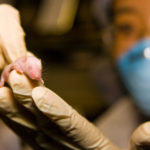
Why you shouldn’t pick lab mice up by their tails
A new study shows how mice are picked up can substantially change their behaviour in cognitive tests (University of Liverpool, 2017). The work, by Dr Kelly Gouveia and Professor Jane Hurst from the University of Liverpool was funded by the NC3Rs and is published in Scientific Reports. The researchers discovered that mice handled by a … Continue reading Why you shouldn’t pick lab mice up by their tails
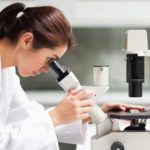
University of Birmingham study finds new class of androgens play key role in polycystic ovary syndrome
Scientists led by the University of Birmingham have discovered that a new class of androgens plays a key role in the development of polycystic ovary syndrome (PCOS) (University of Birmingham, 2017). The research, published online on March 13th 2017 in the Journal of Clinical Endocrinology and Metabolism (April 2017 issue), shows that these novel androgens … Continue reading University of Birmingham study finds new class of androgens play key role in polycystic ovary syndrome
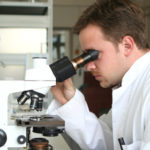
New role for immune cells in preventing diabetes and hypertension
Immune cells which are reduced in number by obesity could be a new target to treat diseases such as type 2 diabetes and hypertension that affect overweight people, according to a collaborative study between the University of Manchester, Lund University and the University of Salford (University of Manchester, 2017). In a study published in Scientific … Continue reading New role for immune cells in preventing diabetes and hypertension







